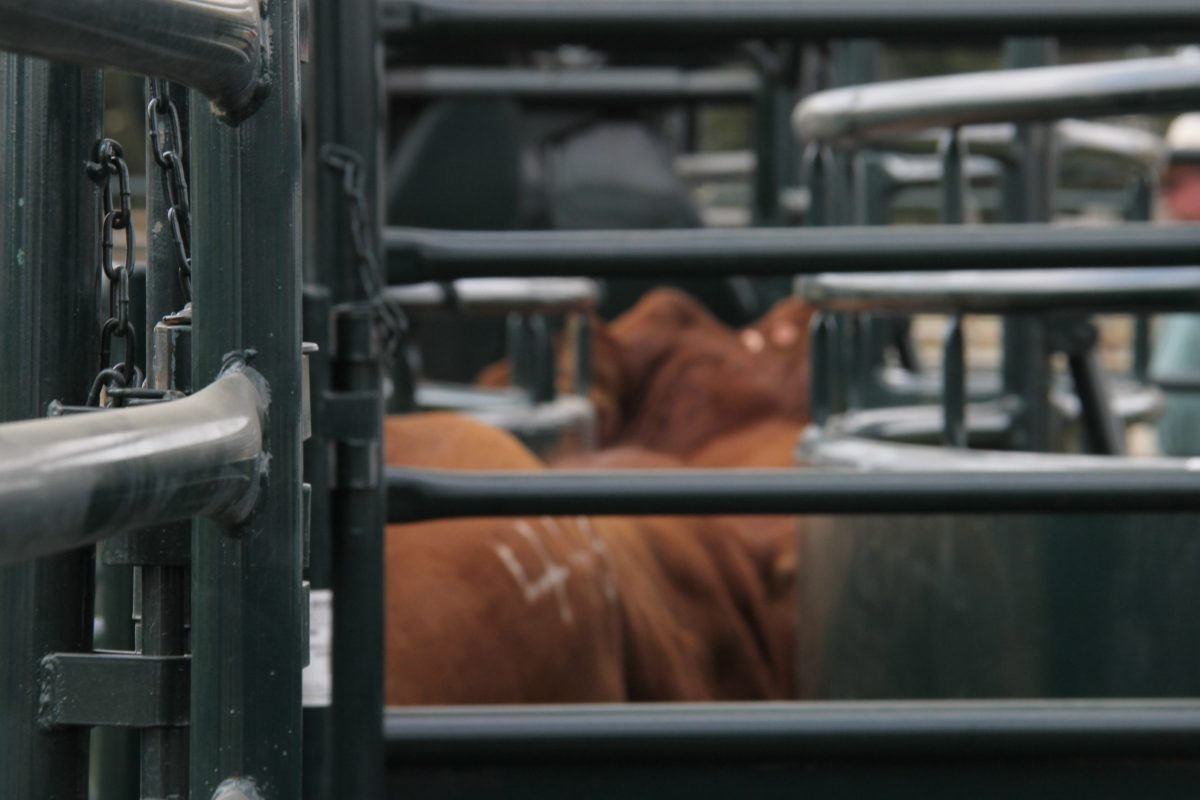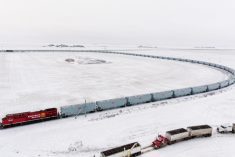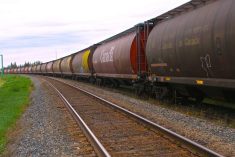A clutch of Prairie grain industry stakeholders says its pool of weekly data on rail car spotting is getting deeper and still shows significant shortfalls in car delivery from Canada’s big two railways.
The Ag Transport Coalition on Tuesday released a performance measurement update, which it says now includes aggregate data from shippers representing about 85 per cent of grain rail traffic in the country — up from 65-70 per cent representation in the group’s inaugural report last week.
Its follow-up report, through crop week 23 ending Jan. 11, says Canadian National (CN) and Canadian Pacific Railway (CP) together provided just 25 per cent (2,271 out of 6,312) of the rail hopper cars that the coalition’s reporting shippers ordered for week 23 delivery.
Read Also

U.S. livestock: Cattle mixed on technicals, profit taking after tight supply rally
Chicago | Reuters – Chicago Mercantile Exchange cattle futures ended mixed on Wednesday as tight supplies and higher choice beef…
Through the first 23 weeks of the crop year, railways failed to supply 15,743 hopper cars ordered by shippers, the coalition said, and the undelivered cars translate to “a shortfall equivalent to nine per cent of shipper demand.”
The shortfall for both CN and CP has “continued to grow weekly since the beginning of the crop year,” the coalition said.
The railways’ car spotting performance in week 23 alone was “significantly lower than weekly average car spots” of about 3,500 cars per week per railway for the crop year-to-date, the coalition said.
Grain shippers reporting boxcar orders saw a marked improvement in week 23, the coalition said, receiving 100 per cent of the boxcars ordered. Crop year-to-date, however, shippers have had just 62 per cent of boxcar orders fulfilled, the coalition added.
Grain bound for West Coast bulk grain terminals also continued to receive relatively more cars than “non-bulk” grain corridors, such as to the U.S. or Mexico, domestic Canadian customers or Vancouver transload facilities, the coalition said.
In week 23, grain destined for West Coast bulk terminals received 40 per cent of cars ordered, while railways supplied 30 per cent of cars ordered for use in “non-bulk” corridors, the coalition said.
Representing the Canadian Canola Growers Association, Alberta Wheat Commission, Pulse Canada, Manitoba Pulse Growers Association, Western Grain Elevator Association, Canadian Oilseed Processors Association, Inland Terminal Association of Canada and Canadian Special Crops Association, the coalition is working with funding from the federal/provincial Growing Forward 2 ag policy framework.
The group retained Edmonton-based QGI Consulting to gather the participating grain shippers’ weekly data on car order fulfillment and deliveries.
“Self-serving”
After the coalition launched its series of reports last week, CP fired back that it was “appalled” to be left out of the coalition’s discussions.
“The use of public funds to drive a single, self-serving agenda under the guise of solving large, complex supply chain issues is unconscionable,” CP CEO Hunter Harrison said in a release Friday.
Calgary-based CP, in its release, urged the coalition to “look broadly at the supply chain and seek input from, and dialogue with, other links in the supply chain — from ports to elevators to terminals.”
“It is disingenuous for the Ag Transport Coalition to say it wants to improve the agricultural supply chain if they don’t want to involve transportation stakeholders in the discussion,” Harrison said.
The coalition replied Tuesday its members “look forward to advancing discussions with government and collaboration with the railways on next steps to ensure that the rail transportation system is meeting the needs” of Canada’s shippers.
Asked for comment Friday, CN replied in a brief email that it “continues its record-setting grain movements” in the wake of the Prairies’ record-sized 2013 crop and subsequent carryover.
Almost halfway through the 2014-15 crop year, CN said, it “has spotted 18 per cent more grain covered hoppers in Western Canada than in the last crop year, when Canada reached an all-time record for grain exports.”
The Montreal company said it’s “fully in sync with the grain supply chain in Western Canada, where end-to-end balance has been restored.” — AGCanada.com Network
















